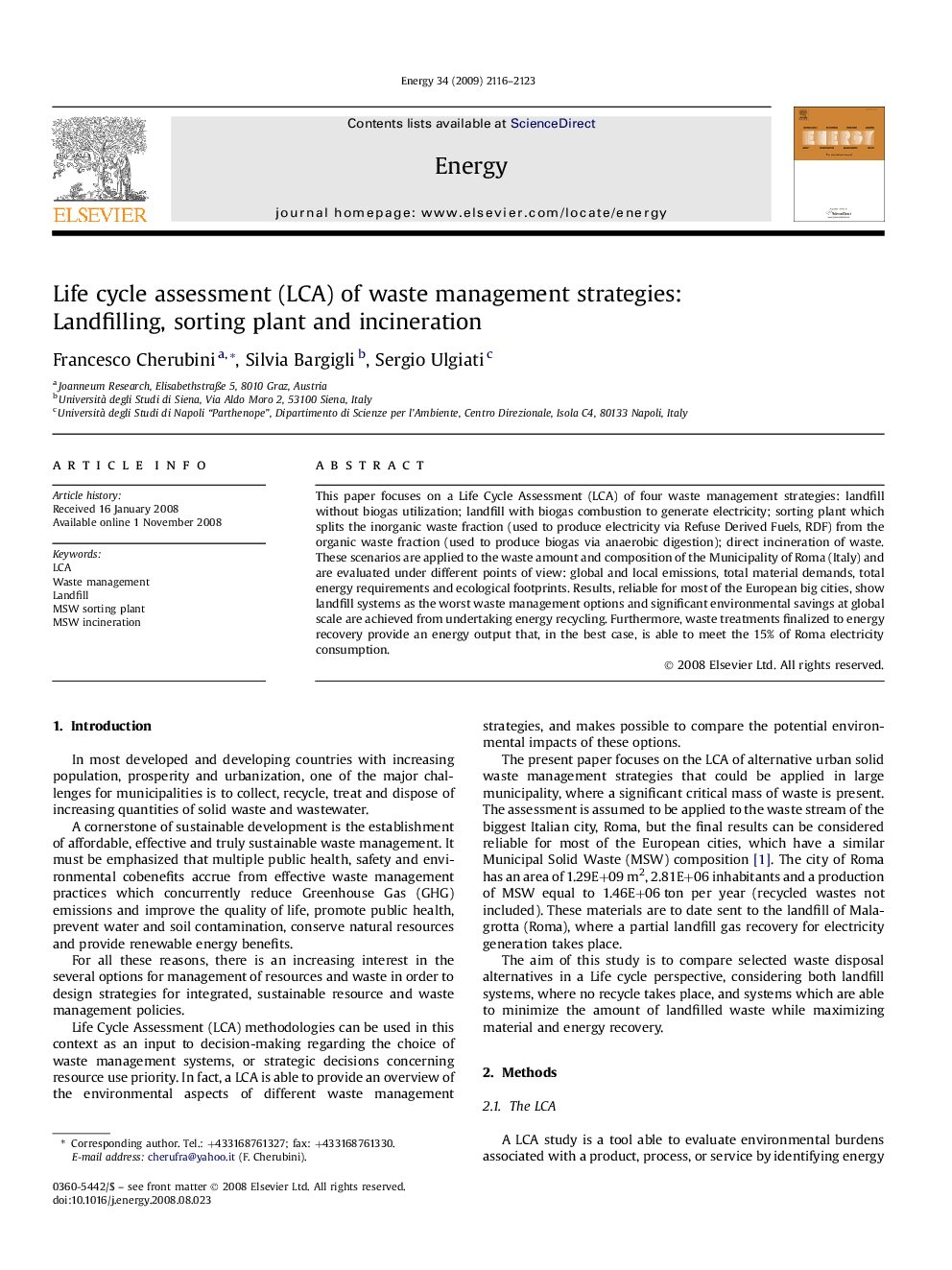| Article ID | Journal | Published Year | Pages | File Type |
|---|---|---|---|---|
| 1734129 | Energy | 2009 | 8 Pages |
This paper focuses on a Life Cycle Assessment (LCA) of four waste management strategies: landfill without biogas utilization; landfill with biogas combustion to generate electricity; sorting plant which splits the inorganic waste fraction (used to produce electricity via Refuse Derived Fuels, RDF) from the organic waste fraction (used to produce biogas via anaerobic digestion); direct incineration of waste. These scenarios are applied to the waste amount and composition of the Municipality of Roma (Italy) and are evaluated under different points of view: global and local emissions, total material demands, total energy requirements and ecological footprints. Results, reliable for most of the European big cities, show landfill systems as the worst waste management options and significant environmental savings at global scale are achieved from undertaking energy recycling. Furthermore, waste treatments finalized to energy recovery provide an energy output that, in the best case, is able to meet the 15% of Roma electricity consumption.
